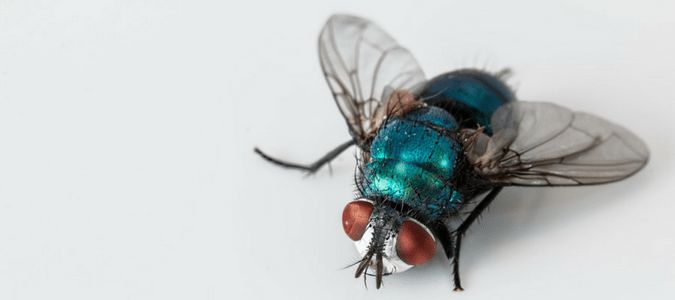
What’s that buzzing around your outdoor picnic? It’s probably fly. That’s because the housefly (Musca domestica) is one of the most common insects people interact with daily. And with more than 16,000 species of flies in North America alone and an ability to produce an estimated 1,000,000 offspring in weeks, it doesn’t look like they’re going anywhere anytime soon.
How Long Do Flies Live?
Let’s learn more about the lifespan and lifecycle of a common fly and how you can rid your home of them. We’ll also address common myths about flies and dive into the world of these pesky pests.
The Lifespan of a Fly
Contrary to popular belief, the common fly lives longer than a mere 24 hours. Entomologists say that mature house flies can live up to 25 days. And while the typical range is between 15 to 25 days, some reports indicate a lifespan of two full months.
A few factors can help extend a fly’s life, though. Like most living creatures, a fly can’t survive without food, and a fly can’t survive more than two or three days without it. Access to sugar can further enhance a fly’s longevity. Another factor is temperature, as adult flies live longer in cooler temperatures.
The Lifecycle of a Fly
The entire life cycle of a fly consists of four stages: egg, larva, pupa, and adult. The life cycle begins when a female fly lays a batch of eggs, sometimes containing up to 150 eggs per batch; the number of eggs produced in each set is dependent on the female’s size, and some can have between five and six new batches of eggs within a few days. Finally, female flies prefer to lay their eggs in a dark, damp environment, like under manure or compost piles. To properly hatch, the eggs that measure about 1.2 millimeters in length and are white must remain moist.
The next part of a fly’s life is the larval stage. Measuring between three to nine millimeters long, the larva can emerge from its eggshell within eight to 20 hours in warm weather. The larva requires temperatures between 95 to 100 degrees Fahrenheit to grow into a larva. The larva can fully grow at this temperature in four to 13 days. Though larva grows best in manure-like environments, a little manure is needed for development. Once fully grown, the larva can crawl to a dry, more relaxed atmosphere to transform into the pupal stage.
The pupal stage differs entirely from the larval stage, differing in color and shape. For starters, the skin ranges from yellow, red, and brown to black as it develops. Secondly, while the shape of the larva is cylindrical, the pupa is bluntly rounded at both ends. In about two to six days, at a temperature ranging from 90 to 99 degrees Fahrenheit, development is completed, and the fly emerges.
The final stage is adulthood. The average fly ranges between six to seven millimeters in length, and size can differ between sexes. The female’s eyes are far apart, while the male’s eyes are located close together. Both eyes, however, are red in color. And while males and females have a grayish-colored abdomen, male flies have a yellowish underside.
How To Keep Flies Out
Now that you know a thing or two about flies, let’s explore ways to keep them out of your home. The first step towards maintaining flies out is good sanitation. If you have a fly problem, remove potential food sources and areas where flies can lay eggs. That means eliminating compost sites and keeping your garbage area as dry and clean as possible.
Trust the Experts at ABC With Your Pest Problems
While there are a few other DIY fly prevention tactics, these pesky insects are so prolific that it’s usually best to call the experts to handle the problem. The skilled and knowledgeable technicians at ABC Home & Commercial Services can come to perform a thorough inspection and come up with a customized flying pest treatment plan to ensure your home is pest free. Flies can be a nuisance, but with ABC Home & Commercial Services, you can rest assured that your home—and pest problem—will be taken care of.